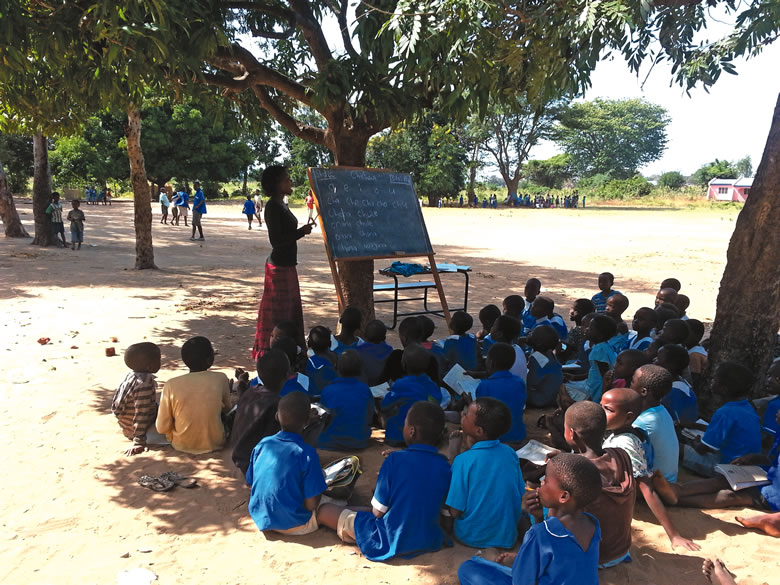
There is a dirt road in Musanze, Rwanda, that is often overrun with children—some meandering barefoot, others wearing shoes with holes in the toes. Broken straps flapped against their ankles when they walked beside me down the thoroughfare, a common occurrence during the summer I taught English at a vocational trade school in town.
On our campus, construction was an area of study. When I inquired about my students’ aspirations to build homes, one 18-year-old answered: “It is where I could make a change and a difference in my country. I will be able to help Rwandans get jobs.” To reach his goals, this student didn’t need donated footwear that would fray over time. He needed to acquire the expertise required to excel in his chosen profession.
A number of Laguna Beach locals have honed in on this reality, recognizing that education is the key to providing residents of developing nations the means to lift themselves out of poverty. By directly impacting those shaping their nation’s future, their organizations contribute to a statistically proven solution: One year of schooling can increase a person’s earnings by 10 percent, while each additional year can lift the average annual GDP by 0.37 percent, according to the United Nations Educational, Scientific and Cultural Organization (UNESCO). In effect, this refrains from “fixing” chronic poverty, instead facilitating a remedy that comes from within. While many of their philanthropic efforts have spanned years, all of the following individuals have made major contributions to support international education in 2015—with ambitious plans to continue—proving that local efforts can have a lasting, global impact.
Alleviating Obstacles
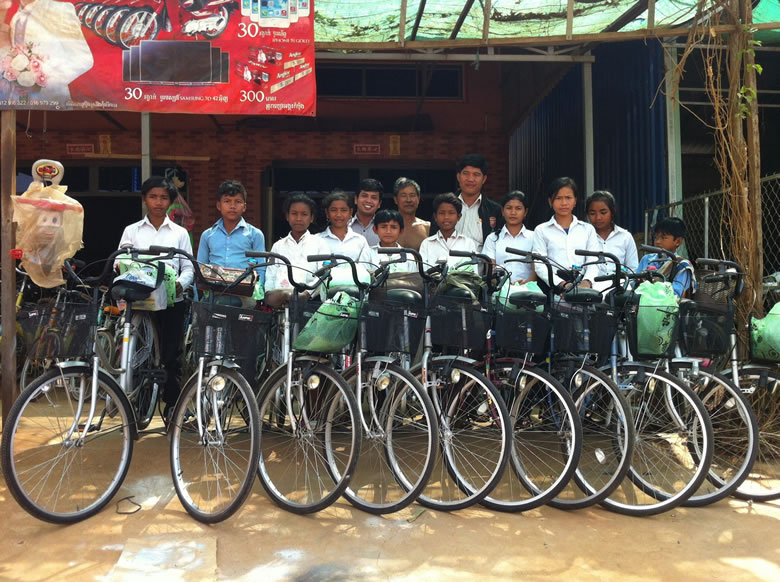
In July, the UNESCO Institute for Statistics reported that 124 million children and young adolescents between the ages of 6 and 15 were not enrolled in school in 2013. While a number of factors contribute to such deficiency, the cost of education and lack of nearby campuses are two issues currently being combatted by Stan Frymann in the Kampong Speu Province in rural Cambodia.
Partnering with nonprofit Rescue Task Force, Stan is building Laguna Beach Friendship High School in the Taing Som Rong commune, on the same campus as the local middle school. Stan and several other Laguna residents sponsor more than 30 students there, but discovered many were dropping out upon completion because the nearest high school was too far away.
Construction on the five classrooms is expected to be complete in March 2016, so this year’s class of approximately 50 students currently meets at the middle school. Several students are also living in two “snake-resistant” dorms; opened on the campus in November, the construction was jointly funded by a $2,000-plus donation from two other Laguna residents.
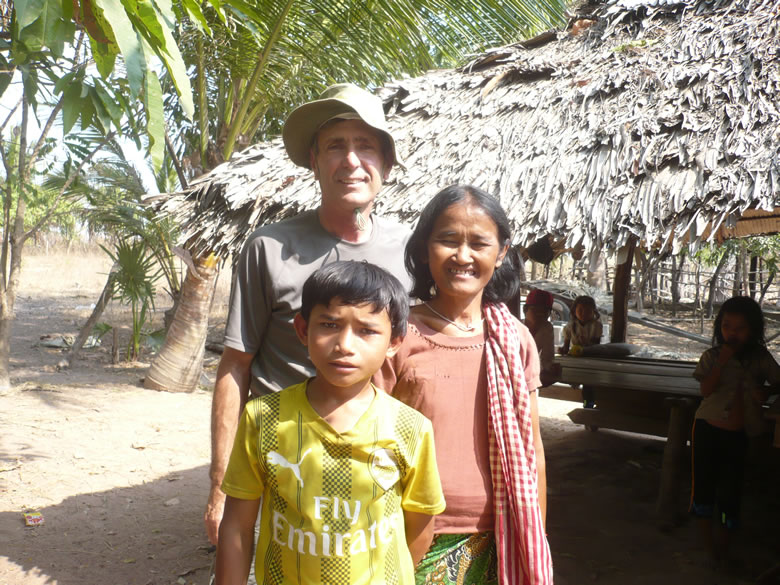
“We’re hoping that the presence of the high school will ripple all the way down and encourage more kids to stay in school,” says Stan, who hopes for nearly 300 total students at full implementation.
This year, only seven children from the community completed high school courses and two passed their final exam. Families in the area often pull junior high boys from school to work in the fields, while girls are typically removed in high school to labor in sweatshop factories. Likewise, I heard the stories of many Rwandan students orphaned by the 1994 genocide who were forced to beg or work odd jobs, only finding themselves off the streets and in a classroom due to philanthropic schools willing to sponsor their education.
One of Stan’s own students, Yin, continues to work in the fields on weekends to support his cancer-stricken mother since his father passed away. In spite of it all, the teen ranked No. 3 in his class of 65 seventh-grade students, one of seven children sponsored by Stan that placed in the top 10. On a visit to the boy’s home, Stan asked his mother about her dreams for her son: She said she hoped he’d become a doctor.
“My reaction was, well, if we could get him to the point where he could be a dental assistant [and] help in a clinic, that’d be a pretty good score for us,” Stan says. “But you know, if he can be No. 3 in his class, who knows how far he could go if he had the opportunity.”
Female Focus
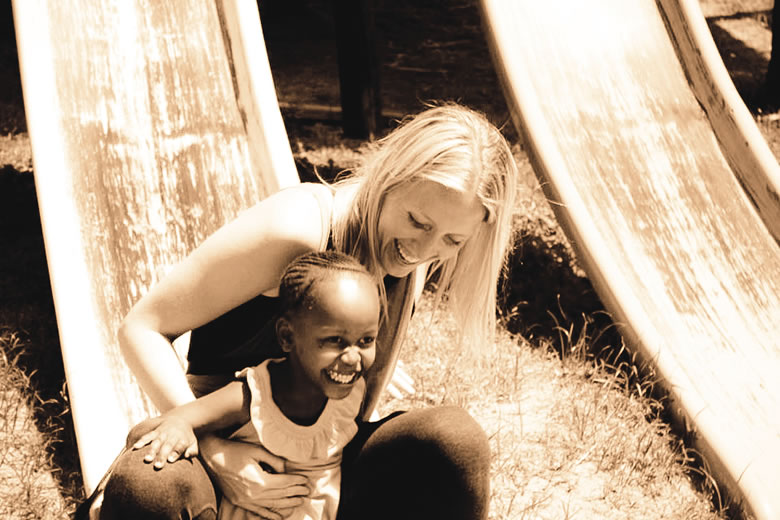
In many developing nations, cultural practices or social stigmas can also contribute to disparities in education, particularly for women and girls. A common practice among the Maasai in southern Kenya, for example, is female genital mutilation, arranged for girls as young as 9 years old and often serving as the precursor for forced early marriage. These traditions typically prevent access to school.
One Laguna Beach organization, however, is working to change the status quo. Led by founder Lindsey Pluimer, With My Own Two Hands funded scholarships for 25 girls rescued from the cultural practices at the AIC Girls School and Rescue Center in Kajiado, Kenya. In addition to housing nearly 50 rescued girls, AIC serves as a boarding school for 700 students through eighth grade; Lindsey’s nonprofit covers tuition and room and board.
“These girls crave an education,” says Lindsey, a former professional and UCLA basketball player. “These girls have sacrificed their family and their culture and everything to receive an education. … They know it’s something that they want and desire for their life and better opportunities.”
“One of the most powerful things we can do as an organization is [give] them that opportunity to receive knowledge, and at the end of the day, receive power from that knowledge.” – Lindsey Pluimer
With My Own Two Hands is also constructing a dormitory at a similar institution, HELGA Rescue Center, in the same town. The refuge, which also comprises a school, is currently at capacity with 45 girls but will soon be able to rescue 42 more with the additional shelter opening by mid-January.
“The more educated people are, statistically it shows that can lift them out of poverty,” Lindsey says. “One of the most powerful things we can do as an organization is [give] them that opportunity to receive knowledge, and at the end of the day, receive power from that knowledge.”
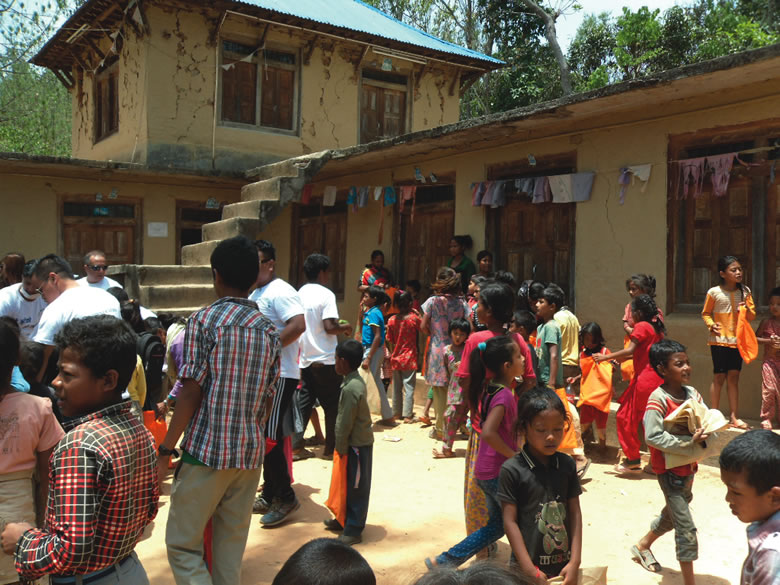
Female educational opportunities are also the focus for Rosalind Russell, who started her nonprofit, R Star Foundation, in 2003. In addition to providing literacy classes for approximately 3,350 women in rural Nepal over the last 12 years, Rosalind operates Top of the World School – Nepal in the village of Wojethar for nearly 50 students from kindergarten to sixth grade. She employs five female teachers—highly unusual for a rural area—to ensure a safe environment for female students, whom she has supplied with full scholarships since the school’s opening in 2009. “Educate a boy and you have an educated man,” Rosalind says. “Educate a woman and she takes care of the village.” (Recently, Rosalind started covering the tuition for male students as well.)
Prior to the school’s existence, children in the village had to walk an hour to reach the private government school, where costs are high and the distance puts them at risk of kidnapping or injury during monsoon season. Despite opening in June under tarps due to the recent earthquakes, Rosalind’s school continues to flourish—its students consistently test in the top 10 percent of the nation—as do her microloan programs for women in nearly 50 Nepal villages.
“If a woman is educated, she automatically knows she has worth and value,” Rosalind says. “… Educating the women is supporting the core of the country.”
Beyond the Classroom
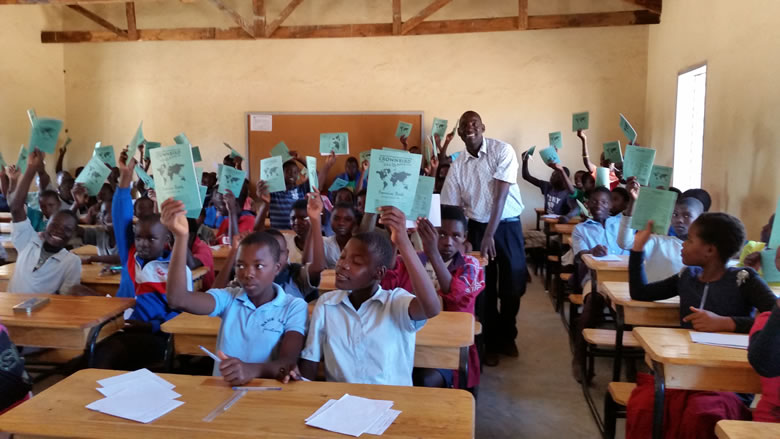
Education, however, doesn’t end upon graduation. Since 2008, Mary Ellen Carter has made an impact in the Mangochi District of Malawi through her nonprofit Direct Connections to Africa, starting three preschools and two educational centers; sponsoring 350 students through secondary school and more than 40 students through college; and establishing donor connections with 25 teachers.
In recent years, however, she noticed a trend: “What happens to a lot of these students [after college] is they come back to the rural area, and they don’t know about networking or their networking group is all people who aren’t educated,” Mary Ellen says. “They come back and they sell vegetables like they did when they were in eighth grade.”
As a result, next year Mary Ellen is starting a job development center in her educational center in the district (with plans to build a bigger infrastructure based on its success), where her students can learn basic computer and interviewing skills, resume writing, and budgeting and banking. She plans to staff a career counselor and employ a Malawian recruiter to place the students in occupations consistent with their schooling.

“My focus is to keep them in Malawi and help them become leaders and change their country,” Mary Ellen says. “I’m really for them working for their own country, changing their own country and becoming leaders.”
A similar sentiment is echoed by Christine Casey, who founded Chhahari Organization Nepal, a hostel for about two dozen at-risk and orphaned children in Kathmandu, Nepal. In addition to sponsoring each child’s school tuition and exam fees, the nonprofit currently funds two of its students’ college educations and will do the same for nine more expected to graduate over the next three years.
“[Developing] countries are going to change only by education, and only by educating their population and trying to keep them there so then they can change the country from within,” says Christine, who spent all of her savings, sold her car and moved into an Alice Court apartment to start her organization. “It doesn’t matter how many billions of dollars you pour in from the outside. … It has to come from within and it has to come through education.”
Additional Aid
Laguna Beach residents are also lending a helping hand to international education in nondirect ways
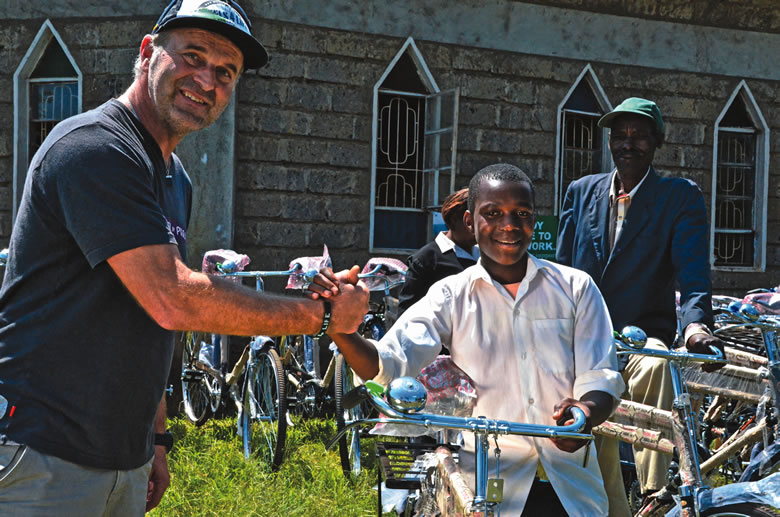
Wheels4Life
Professional mountain biker Hans Rey and his wife, Carmen, partner with local individuals and organizations to provide free bicycles to those in need. As of November, Wheels4Life has funded 7,854 bikes in nearly 30 countries, most recently spearheading a Wheels4Nepal campaign to help victims of the recent earthquakes. Bikes allow students to get to school quicker and strengthen safety for women traveling on the roads; they also increase the efficiency with which healthcare workers can visit patients. (wheels4life.org)
Ethiopian Family Fund
Locals Dan and Marla Hodes partner with Mending Kids and doctor Rick Hodes (Dan’s brother, who has worked in Ethiopia for about 30 years) to provide surgeries for Ethiopian children with heart disease, cancer and spinal defects; many patients are orphans or come from poor families. In June, Ethiopian Family Fund funded a pediatric medical mission that resulted in 12 surgeries and 18 cardiac catheterizations. The group also sponsors schooling for 32 girls and offers microfinancing to approximately 25 women affected by HIV and AIDS each year. (ethiopianfamilyfund.org)
Growers First
Growers First, founded by Dave Day, provides sustainability to coffee farmers in Honduras and Mexico by strengthening and diversifying crops, as well as providing educational and financial support to obtain organic certification. Due to the outbreak of a fungus, the organization provided chainsaws to cut down nearly half a million dead trees in Oaxaca, Mexico this summer, and will plant 250,000 new seedlings before the end of the year. In January, the group participates in a bicycle ride in Honduras that awards top students across the country with scholastic honors. (growersfirst.org)
—Written by Kristin Lee Jensen




